Office Hours
Sometimes you drop into office hours and walk out with a dang assignment...
Well, it turns out that a Death Cleaning, at least when I do it, is more like a Death Rearrangement of All One’s Stuff. The movers just dropped off everything I packed up in New York and now we are energetically sorting through it all. I am hip-deep in plastic bins with broken lids. (Oh, the glamorous literary life!)
So I hope you’ll forgive me if, instead of our usual Q&A, I offer you a writing exercise that I really love, and that I just rediscovered sitting there quietly in some of my teaching materials, just waiting for a group of eager writers to show up and honor it with their attention.
There was a time at Syracuse where I was obsessed with getting my students to step out of their received and habitual writing voices (the voices they thought they should be doing, the voices they had always been praised for) and into…something else.
This exercise was part of that effort.
The idea is to distract that part of ourselves that knows how we sound and starts sounding that way as soon as we sit down to write, and to invite in other voices, especially if we find that we can “do” these voices with verve, and have fun doing them. And even if (we claim) we’d never use such goofy voices in our “real” work.
In a sense, it’s an exercise in finding out what unexplored gifts of voice one might have.
Here’s how it works:
Below, you’ll find four swatches of rather odd writing - these are all from non-fiction sources. (As you’ll see, a couple of the vignettes are two-pagers - different topics but in the same (odd) voice.)
The exercise is simple, really: Read all four in order, then choose one to mimic. Try to write a (let’s say) 200-word piece in that voice or, if it suits you better to think of it this way, “from that stance.” It might be even better to say: choose one on which to riff, in response.
Don’t overthink it. Read them, pull forward the one that interests you most, and just…begin. (If you tend to overthink or over plan, setting a time can be useful.)
Goof around, play, abandon whatever armor you usually put on in that split-second before you start typing.
The idea is to let the oddness of your chosen text get into your head - the sound of it, really - then see what your head does in response.
Remember: it’s just for fun. Nobody’s going to read it but you.
Vignette One:
Vignette Two:
Vignette Three:
Vignette Four:
So: choose one, start writing.
Shoot for 200 words but feel free to write shorter than that, or longer.
You’re not trying to duplicate the example, or honor the events in it; you’re just reacting to it, however you naturally feel like reacting to it. There are no wrong answers.
How was that? If you feel like it, tell us, in the Comments, what you did and how it felt. You might have found yourself using some new muscles; not sounding like “you.” You might have found that your whole approach was different; that, for example, your approach to (so-called) plot got freed up or destabilized. Maybe you’re funnier or darker or more serious or lighter than usual. It might also have made you incrementally more aware of how you normally approach a piece of writing - your de facto assumptions about how you sound, or how you make rising action - the little things your mind is always doing or seeking as you write.
If any of the above is true: good.
That’s really the point, simply to remind you that you “contain multitudes.”
The exercise might also make us think a little about what “talent” really is.
In the same way that one of the marks of a great athlete is that she or he can always find a way to win, we should know, or at least try to believe, that if we are dropped into any piece of writing, in any voice, our talent will help us do something lovely with it.
I think this is a good goal: to work enough, in enough different modes, that we come to have confidence that our talent is adaptable and resilient and can always surprise us; it is capable of rising to any occasion; capable of getting out of any fix we put it in. It is a very dear friend that we actually don’t know all that much about, who thrives when we trust it and give it some respect and room, and especially thrives in an atmosphere of fun and generosity and exploration...
The new book, Liberation Day, comes out in a little over a month. So this is the period where we start to get reviews and interview requests are being set up and tour moderators are being firmed up and all of that. A nervous time but, of course, a rich time, and a time to feel grateful too - for all of the people who are helping me get my work out into the world, and so beautifully - my friends at Random House and Bloomsbury.
And every day, seems like, something nice happens.
Yesterday, for example, my editor, Andy Ward, sent me these, the first photos I’ve seen of the actual book:
On Sunday, I’ll be sending our paid subscribers a link to a story that is, in my opinion, one of the most electrifying and bold stories ever written by an American writer.
And then we’ll discuss it the following Sunday.
Thanks for being here.

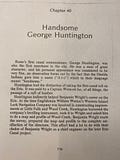





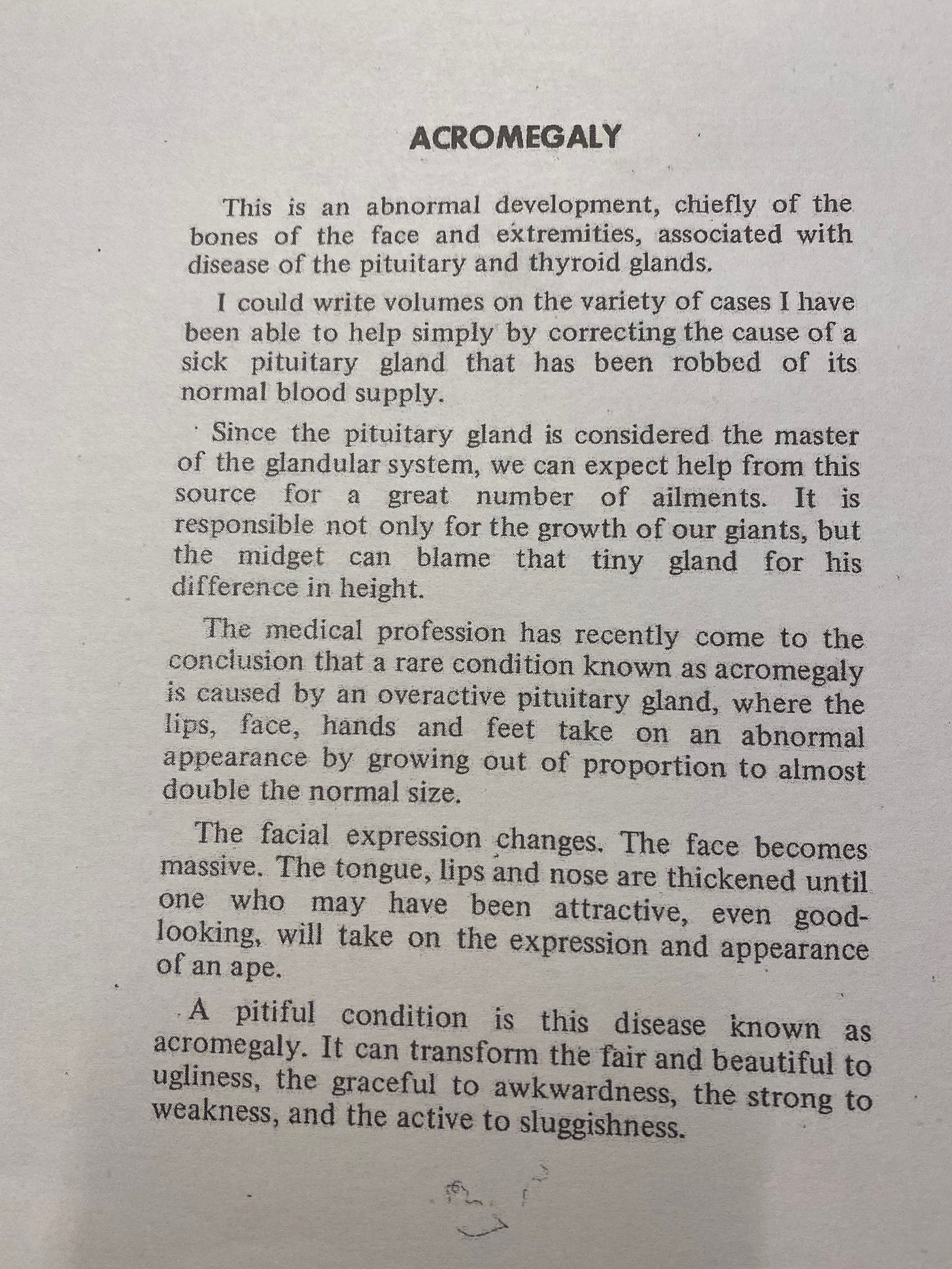
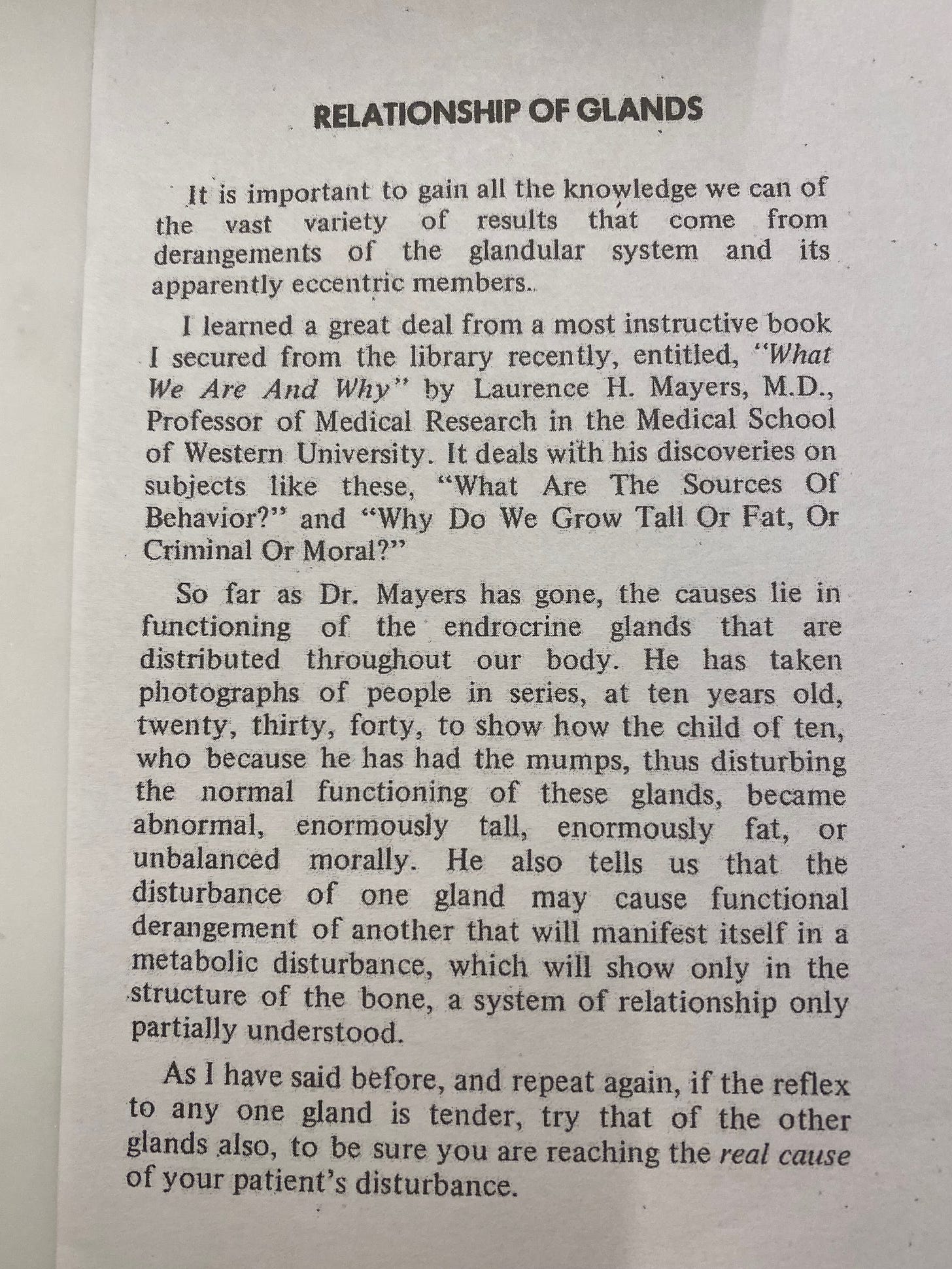

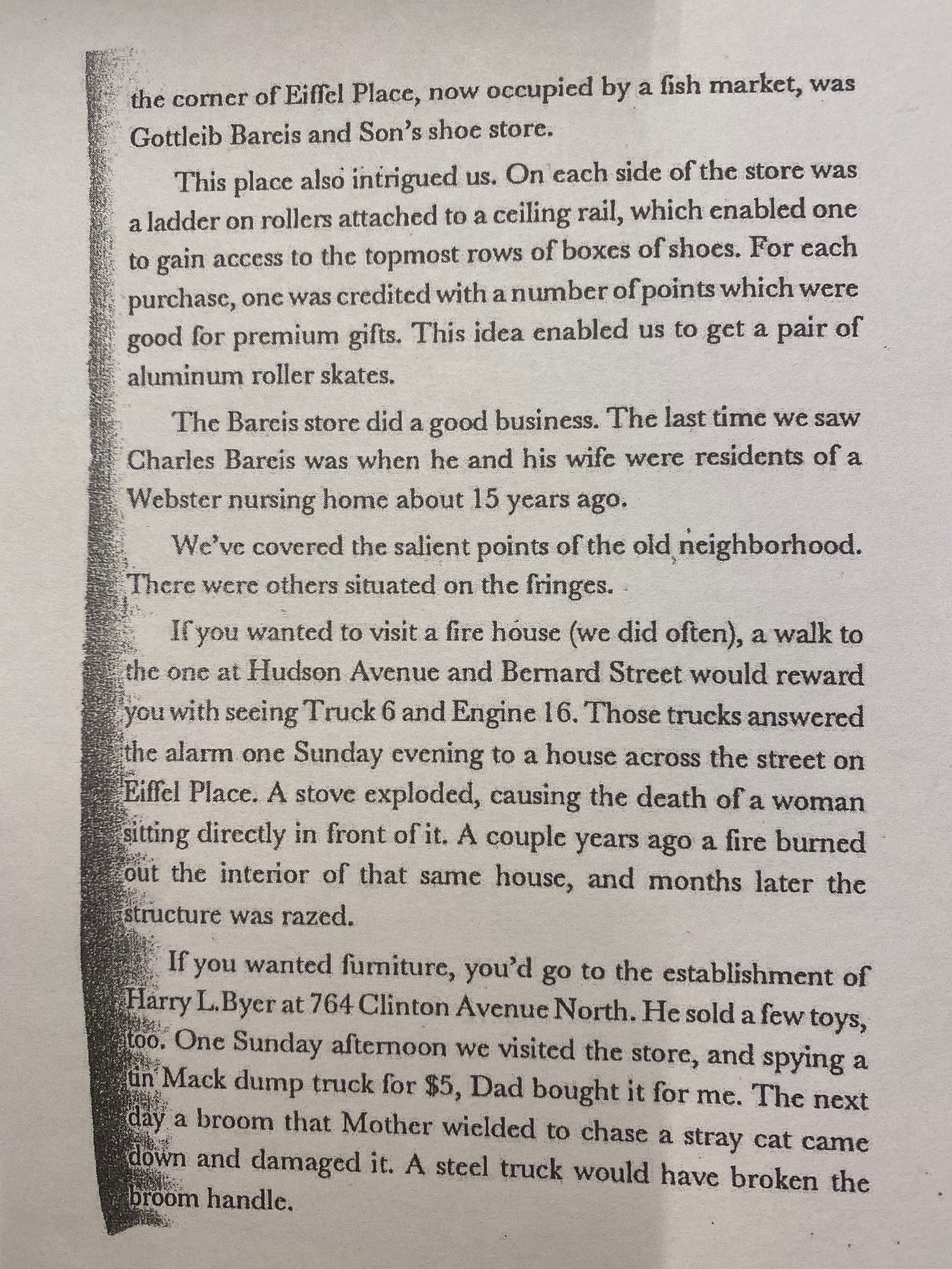


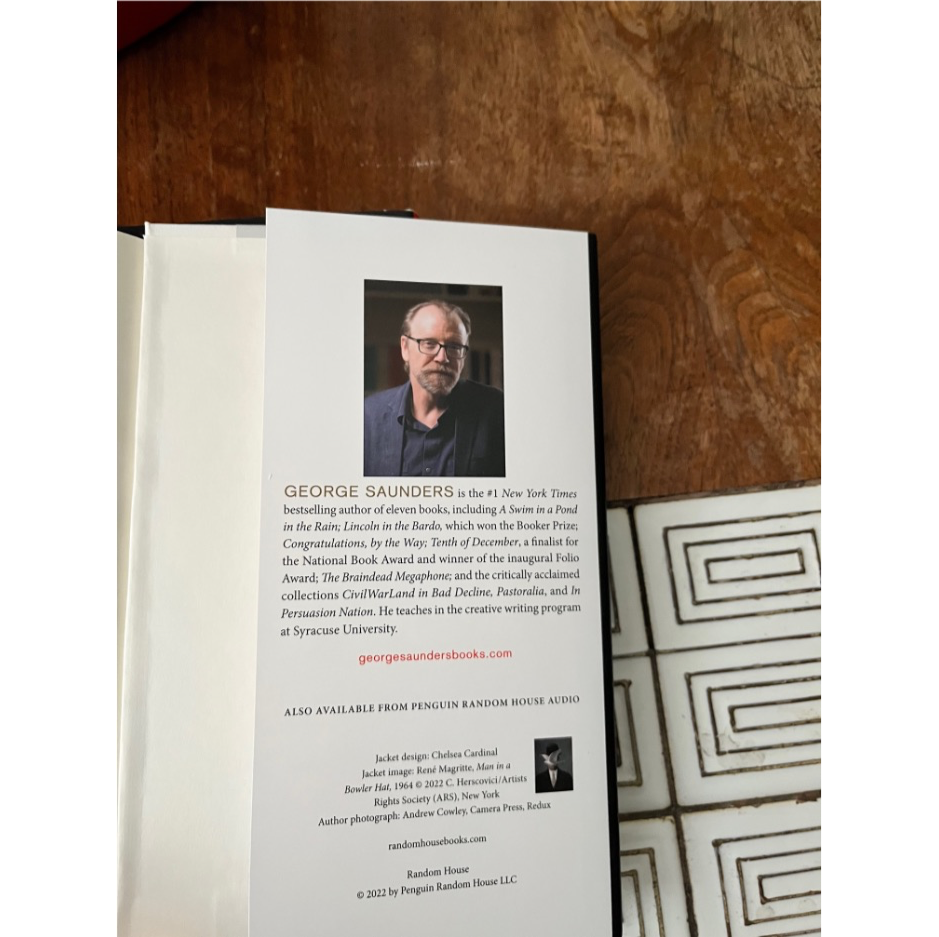
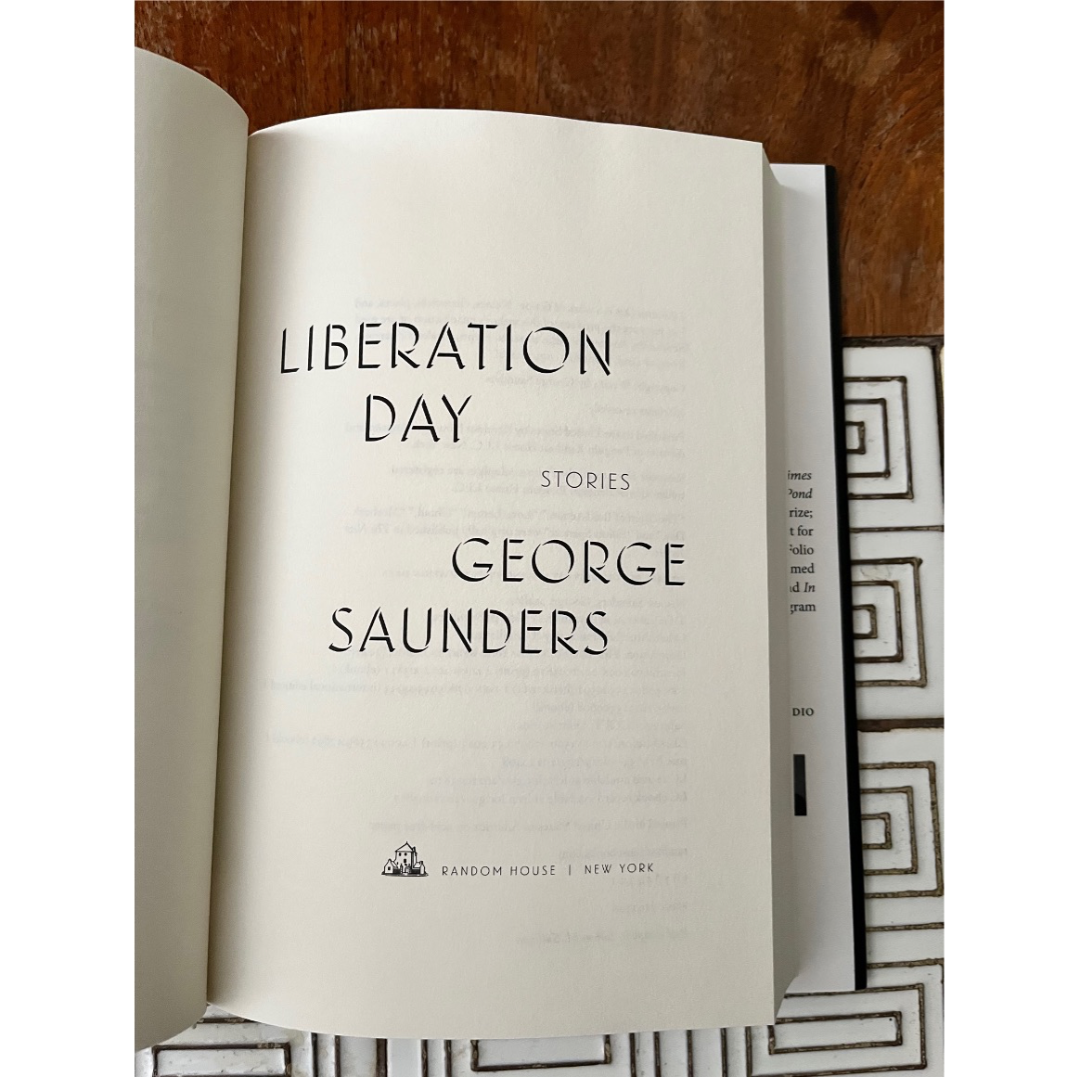
I've pretty much stopped soliciting blurbs. I don't think we've gotten blurbs since Tenth of December. That whole practice is...so fraught. Those are mostly from reviews of the other books, Mary's included. The one from Oprah Daily is new and is specifically about Liberation Day. Maybe we can do an Office Hours on the topic of blurbs someday soon...
This has nothing to do with the exercise, but just about all the death cleaning that’s been going on at the Saunders’: I’ve been following and loving all the posts about it and then last week, my best friend died 😔. So I’ve spent the last week doing actual death cleaning with her family and friends. It’s been incredibly hard but incredibly enlightening. She lived in her (super cool) artist loft for 23 years, and going through it has been a tender, terrifying, beautiful window into the life of a person I loved. Doubling down on things I found fascinating about her and learning so many new things about her as well. Honestly, I think Ive been able to do it with so much calm curiosity because of the death cleaning I’ve been seeing here. Watching you sort through and make sense of your drafts and doodles and letters and speeches has helped me find the beauty in the process. I’ve been writing my way through it because, well, that’s how I cope best. So thank you for showing me how it’s done! ❤️